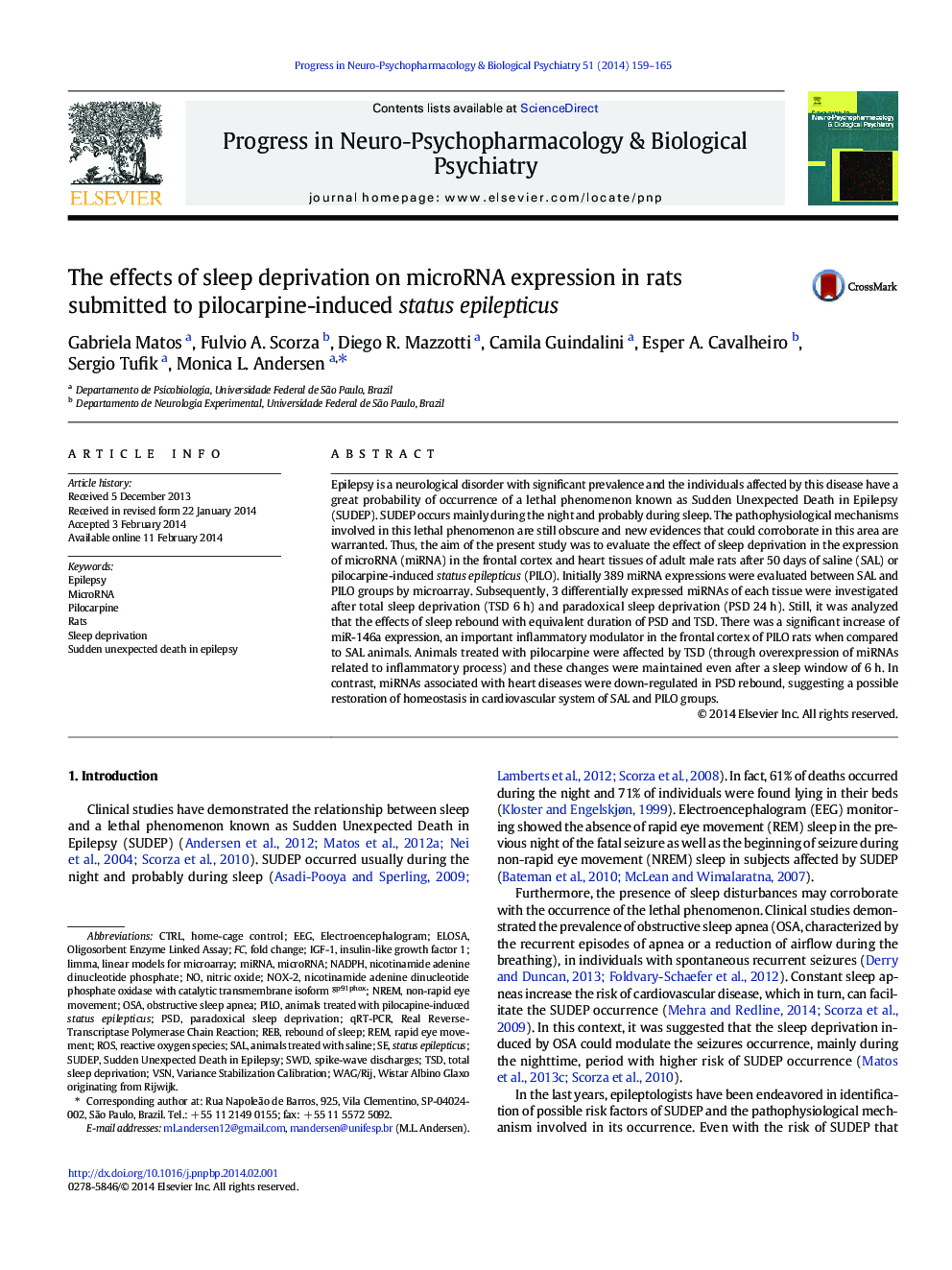| Article ID | Journal | Published Year | Pages | File Type |
|---|---|---|---|---|
| 2564855 | Progress in Neuro-Psychopharmacology and Biological Psychiatry | 2014 | 7 Pages |
•The effects of sleep loss can influence the occurrence of a lethal seizure.•Few studies have been performed in this theme in animal models.•The effect of sleep loss on microRNA expression was dependent of sleep protocol.•Total sleep deprivation induced detrimental effect only in rats with epilepsy.•Rebound of paradoxical sleep deprivation probably acts as a cardiovascular restorer.
Epilepsy is a neurological disorder with significant prevalence and the individuals affected by this disease have a great probability of occurrence of a lethal phenomenon known as Sudden Unexpected Death in Epilepsy (SUDEP). SUDEP occurs mainly during the night and probably during sleep. The pathophysiological mechanisms involved in this lethal phenomenon are still obscure and new evidences that could corroborate in this area are warranted. Thus, the aim of the present study was to evaluate the effect of sleep deprivation in the expression of microRNA (miRNA) in the frontal cortex and heart tissues of adult male rats after 50 days of saline (SAL) or pilocarpine-induced status epilepticus (PILO). Initially 389 miRNA expressions were evaluated between SAL and PILO groups by microarray. Subsequently, 3 differentially expressed miRNAs of each tissue were investigated after total sleep deprivation (TSD 6 h) and paradoxical sleep deprivation (PSD 24 h). Still, it was analyzed that the effects of sleep rebound with equivalent duration of PSD and TSD. There was a significant increase of miR-146a expression, an important inflammatory modulator in the frontal cortex of PILO rats when compared to SAL animals. Animals treated with pilocarpine were affected by TSD (through overexpression of miRNAs related to inflammatory process) and these changes were maintained even after a sleep window of 6 h. In contrast, miRNAs associated with heart diseases were down-regulated in PSD rebound, suggesting a possible restoration of homeostasis in cardiovascular system of SAL and PILO groups.
